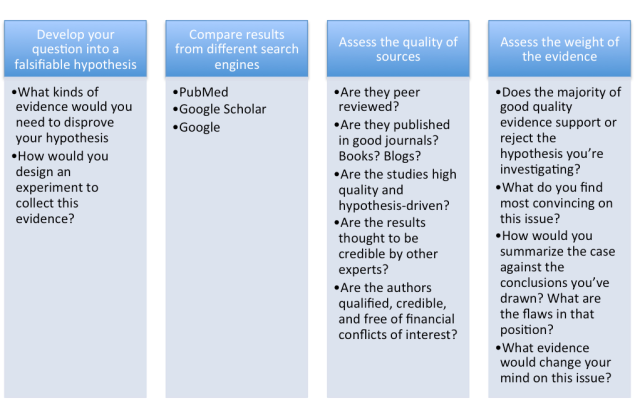As I’m putting the (hopefully) final touches on a short textbook that I’m writing entitled “Handbook on Science Literacy”, I’ve been thinking a lot about how to recommend a person go about systematically investigating a scientific issue without having any background in it. Sure, you can learn how to read and understand a scientific article, but let’s be honest—far too many people choose instead to do a quick web search and let that settle the question. This practice works okay in some instances, but in others it produces misleading or wrong answers.
I want to share with you my strategies for flunking out of the University of Google.
This is one instance where flunking is a good thing. A graduate of the University of Google chooses to accept only information that supports his or her position, and ignores or dismisses information in conflict with it. A graduate of the University of Google will not be able to answer the question “What kind of evidence would change your mind on this subject?” It’s insidious, because once their opinions are formed in this way, they tend to identify with other people who share those opinions, and any new information that comes their way will either be accepted or rejected on the basis of which position they’ve already taken (the cultural cognition effect)
None of us want to be that kind of person.
Flunking out requires a decent amount of work, and the willingness to accept that you might be wrong about a subject from time to time. You’ll need to become more aware of your own cognitive biases, and have some strategies for overcoming them.
So as a preliminary step down the road to science literacy, I’ve put my thoughts on this together into a guide to learning about a subject in which you have no background. It’s an exercise; please don’t shortcut the process and go to Wikipedia, or you’ll miss the whole point.

